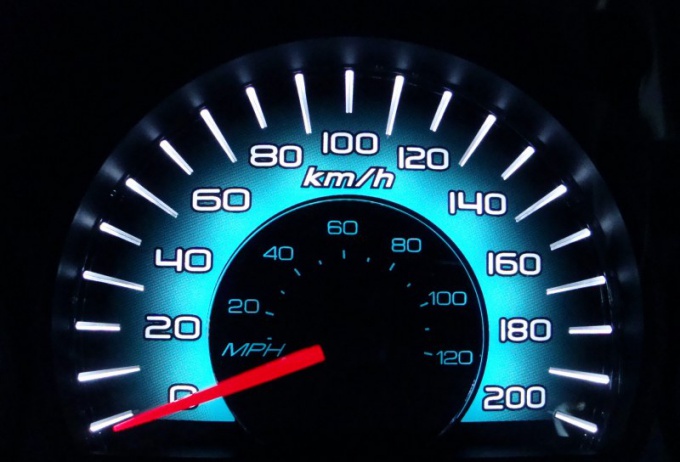The conversion of units of speed from one to other parameters requires an understanding of the ratio of the units used between them.
This is necessary in particular in order to translate meters per second to kilometers per hour. Thus, the ratio of kilometers and meters, as you know, is 1 to 1000. In other words, one kilometer contains 1000 meters. In turn, hours and seconds related to each other as 1 to 3600. One hour contains 3600 seconds.
Thus, to translate a certain number of meters per second in the corresponding number of kilometers per hour, should consider the value divided by 1000 and multiplied by 3600. However, this rather cumbersome expression can be simplified by reducing the used coefficients between them. Therefore, to translate meters per second to kilometers per hour you must consider the value to multiply by 3.6.
The appropriate calculations can be made for any speed of both the small and big. For example, you can make a transfer speed equal to 1 meter per second to kilometers per hour by multiplying it by a factor equal to 3.6. In result it turns out that this velocity equivalent to the speed of movement equal to 3.6 kilometers per hour.
Understanding the necessity of establishing a relationship between the initial values can be the implementation of the reverse translation - from kilometers per hour to meters per second. To convert kilometers to meters with regard to their relations among themselves, should the initial number of kilometers multiplied by 1000. Likewise, based on the relationship between the clock is transferred in seconds.
Therefore, to convert kilometers per hour to meters per second, you must do the opposite operation: consider the value multiplied by 1000 divided by 3600. Attempt downsizing of the coefficients in this case gives a fairly inconvenient for computing the result - 0,2(7). However, to solve this problem is a simpler way: instead of multiplied by a factor equal to 3.6, should be dividing by it.
This method can be used to transfer any values, expressed in kilometers per hour to meters per second. For example, it can be applied to standard speed of movement through the city is 60 kilometers per hour. Performing the appropriate calculations, we find that the speed indicated is approximately equivalent to 16.7 meters per second. Similarly, it is possible to calculate, for example, the standard speed of the pedestrian, knowing that she is about 6 kilometers per hour, we can calculate that this equates to about 1.7 meters per second.
Translation meters per second to kilometers per hour
This is necessary in particular in order to translate meters per second to kilometers per hour. Thus, the ratio of kilometers and meters, as you know, is 1 to 1000. In other words, one kilometer contains 1000 meters. In turn, hours and seconds related to each other as 1 to 3600. One hour contains 3600 seconds.
Thus, to translate a certain number of meters per second in the corresponding number of kilometers per hour, should consider the value divided by 1000 and multiplied by 3600. However, this rather cumbersome expression can be simplified by reducing the used coefficients between them. Therefore, to translate meters per second to kilometers per hour you must consider the value to multiply by 3.6.
The appropriate calculations can be made for any speed of both the small and big. For example, you can make a transfer speed equal to 1 meter per second to kilometers per hour by multiplying it by a factor equal to 3.6. In result it turns out that this velocity equivalent to the speed of movement equal to 3.6 kilometers per hour.
Translation of miles per hour to meters per second
Understanding the necessity of establishing a relationship between the initial values can be the implementation of the reverse translation - from kilometers per hour to meters per second. To convert kilometers to meters with regard to their relations among themselves, should the initial number of kilometers multiplied by 1000. Likewise, based on the relationship between the clock is transferred in seconds.
Therefore, to convert kilometers per hour to meters per second, you must do the opposite operation: consider the value multiplied by 1000 divided by 3600. Attempt downsizing of the coefficients in this case gives a fairly inconvenient for computing the result - 0,2(7). However, to solve this problem is a simpler way: instead of multiplied by a factor equal to 3.6, should be dividing by it.
This method can be used to transfer any values, expressed in kilometers per hour to meters per second. For example, it can be applied to standard speed of movement through the city is 60 kilometers per hour. Performing the appropriate calculations, we find that the speed indicated is approximately equivalent to 16.7 meters per second. Similarly, it is possible to calculate, for example, the standard speed of the pedestrian, knowing that she is about 6 kilometers per hour, we can calculate that this equates to about 1.7 meters per second.




